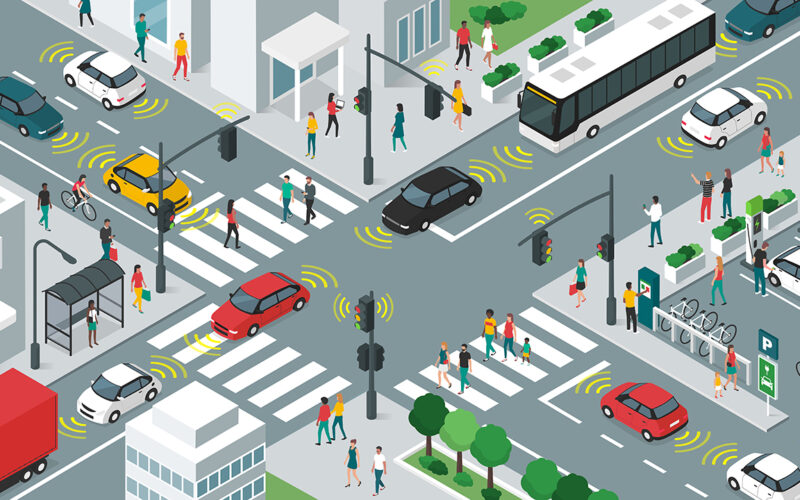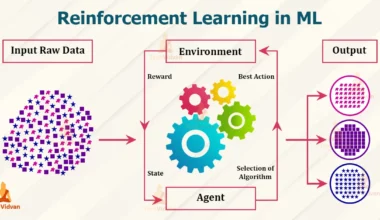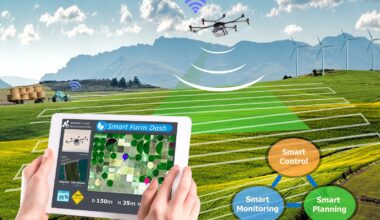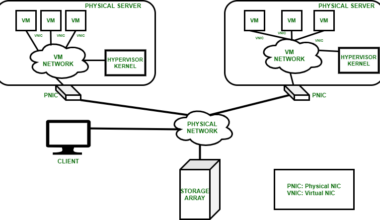What is Smart Transportation?
Smart transportation is a system that uses data and technology to improve the efficiency, safety, and sustainability of transportation. It includes a wide range of technologies, such as:
- Connected vehicles: These vehicles are equipped with sensors that collect data about their surroundings, such as traffic conditions and other vehicles. This data can be used to improve safety, reduce traffic congestion, and optimize routes.
- Intelligent traffic signals: These signals use sensors to monitor traffic flow and adjust the timing of the signals accordingly. This can help to improve traffic flow and reduce congestion.
- Real-time travel information: This information can be provided to travelers through a variety of channels, such as smartphone apps, traffic signs, and websites. This information can help travelers to plan their trips more efficiently and avoid traffic congestion.
- Demand-responsive transportation: This type of transportation provides on-demand service to travelers. This can be done through a variety of methods, such as ride-hailing apps, shared shuttles, and microtransit.
Benefits of Smart Transportation
Smart transportation can offer a number of benefits, including:
- Improved safety: Smart transportation technologies can help to improve safety by providing real-time information about traffic conditions and other vehicles. This information can help drivers to make better decisions and avoid accidents.
- Reduced traffic congestion: Smart transportation technologies can help to reduce traffic congestion by optimizing traffic signals and providing real-time travel information to travelers. This can help to keep traffic flowing more smoothly and reduce delays.
- Increased sustainability: Smart transportation technologies can help to increase sustainability by reducing the environmental impact of transportation. For example, connected vehicles can be used to optimize fuel efficiency and reduce emissions.
- Improved quality of life: Smart transportation can help to improve the quality of life for residents of a city by making it easier and more convenient to get around. This can lead to a reduction in stress, increased productivity, and a more livable city.
Challenges of Smart Transportation
While smart transportation offers a number of benefits, there are also some challenges that need to be addressed. These challenges include:
- Data privacy: Smart transportation systems collect a lot of data about individuals, such as their travel patterns and location. This data needs to be protected to ensure the privacy of individuals.
- Cost: Smart transportation systems can be expensive to implement and maintain. This is a challenge for cities with limited resources.
- Adoption: Smart transportation technologies need to be adopted by drivers, businesses, and other stakeholders in order to be effective. This can be a challenge, as people may be reluctant to change their behavior.
The Future of Smart Transportation
The future of smart transportation is bright. As technology continues to evolve, we can expect to see even more innovative solutions that will improve the efficiency, safety, and sustainability of transportation. Some of the technologies that we can expect to see in the future include:
- Self-driving vehicles: Self-driving vehicles have the potential to revolutionize transportation by making it safer, more efficient, and more accessible.
- Connected infrastructure: Connected infrastructure refers to the use of sensors and other technologies to connect different parts of the transportation system. This can help to improve traffic flow, reduce congestion, and make transportation more efficient.
- Mobility-as-a-service (MaaS): MaaS is a new concept that refers to the provision of all transportation services through a single platform. This could include ride-hailing, public transportation, and bike sharing.
Conclusion
Smart transportation is a rapidly evolving field with the potential to transform the way we travel. As technology continues to develop, we can expect to see even more innovative solutions that will make transportation safer, more efficient, and more sustainable.











